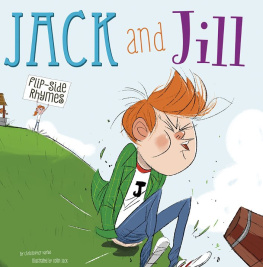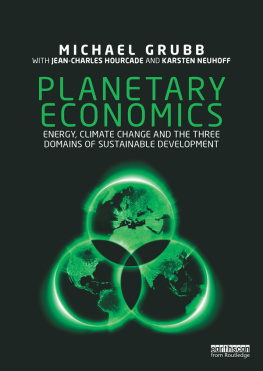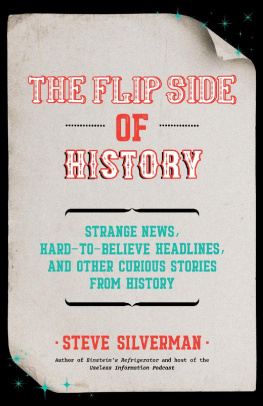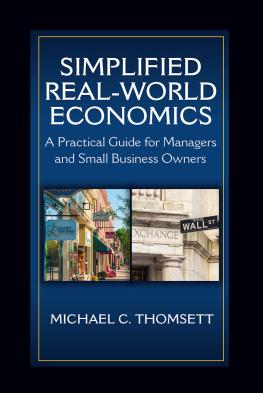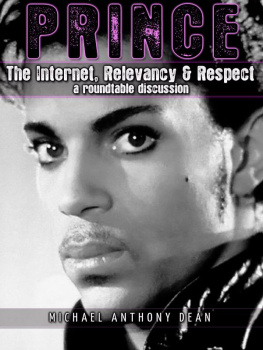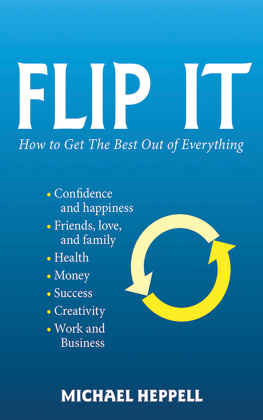Michael Kende - The Flip Side of Free: Understanding the Economics of the Internet
Here you can read online Michael Kende - The Flip Side of Free: Understanding the Economics of the Internet full text of the book (entire story) in english for free. Download pdf and epub, get meaning, cover and reviews about this ebook. publisher: MIT Press, genre: Politics. Description of the work, (preface) as well as reviews are available. Best literature library LitArk.com created for fans of good reading and offers a wide selection of genres:
Romance novel
Science fiction
Adventure
Detective
Science
History
Home and family
Prose
Art
Politics
Computer
Non-fiction
Religion
Business
Children
Humor
Choose a favorite category and find really read worthwhile books. Enjoy immersion in the world of imagination, feel the emotions of the characters or learn something new for yourself, make an fascinating discovery.

- Book:The Flip Side of Free: Understanding the Economics of the Internet
- Author:
- Publisher:MIT Press
- Genre:
- Rating:5 / 5
- Favourites:Add to favourites
- Your mark:
- 100
- 1
- 2
- 3
- 4
- 5
The Flip Side of Free: Understanding the Economics of the Internet: summary, description and annotation
We offer to read an annotation, description, summary or preface (depends on what the author of the book "The Flip Side of Free: Understanding the Economics of the Internet" wrote himself). If you haven't found the necessary information about the book — write in the comments, we will try to find it.
Michael Kende: author's other books
Who wrote The Flip Side of Free: Understanding the Economics of the Internet? Find out the surname, the name of the author of the book and a list of all author's works by series.
The Flip Side of Free: Understanding the Economics of the Internet — read online for free the complete book (whole text) full work
Below is the text of the book, divided by pages. System saving the place of the last page read, allows you to conveniently read the book "The Flip Side of Free: Understanding the Economics of the Internet" online for free, without having to search again every time where you left off. Put a bookmark, and you can go to the page where you finished reading at any time.
Font size:
Interval:
Bookmark:
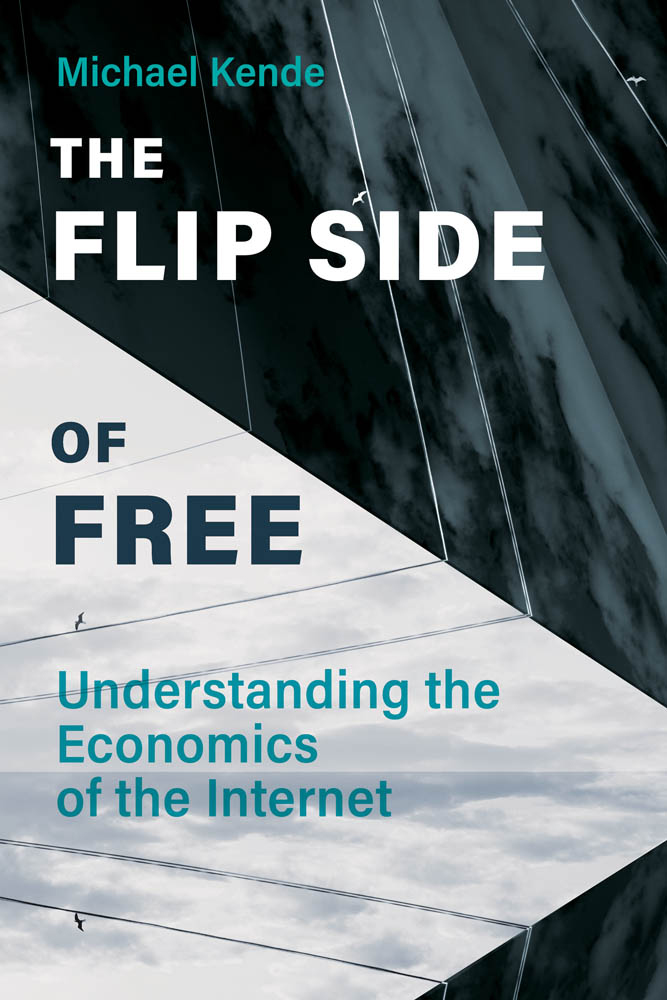
The Flip Side of Free
Understanding the Economics of the Internet
Michael Kende
The MIT Press
Cambridge, Massachusetts
London, England
2021 Massachusetts Institute of Technology
All rights reserved. No part of this book may be reproduced in any form by any electronic or mechanical means (including photocopying, recording, or information storage and retrieval) without permission in writing from the publisher.
Library of Congress Cataloging-in-Publication Data
Names: Kende, M. (Michael), author.
Title: The flip side of free : understanding the economics of the internet / Michael Kende.
Description: Cambridge, Massachusetts : The MIT Press, [2021] | Includes bibliographical references and index.
Identifiers: LCCN 2020020604 | ISBN 9780262045650 (hardcover)
Subjects: LCSH: Internet--Economic aspects. | Information technology--Economic aspects. | Technological innovations--Economic aspects. | Internet--Security measures.
Classification: LCC HC79.I55 K45 2021 | DDC 384.3/1--dc23
LC record available at https://lccn.loc.gov/2020020604
d_r0
List of Figures
Supply and demand.
Internet hierarchy. Source: Michael Kende, 2020.
Trust curve. Source: Michael Kende, 2020.
The first lesson of economics is scarcity: there is never enough of anything to fully satisfy all those who want it. The first lesson of politics is to disregard the first lesson of economics.
Thomas Sowell
Sitting in a Starbucks recently, I logged on to the free Wi-Fi to check my email and catch up on the news. I also had to make a call overseas and used FaceTime. As my call was ringing, I noticed people coming in and going to a side counter to pick up their coffee, which they had ordered and paid for using the Starbucks app. I then had a quick flashback to life before the Internet and thought how different this would have been before.
Earlier, Starbucks may have provided a few free newspapers, or I would have brought my own. I would have had to make my call from a payphone, if I had enough change. And the line for coffee would have been longer, with some anxiously checking their watches so they would make it on time to work. My earlier self would have been amazed to see what a telephone could do. But as my current self began to download the Starbucks app to try it, I wondered if it was just a bit too free and easy.
Had everyone rushing in to pick up their ready coffee actually read the terms of use when they downloaded the app? Or, like most people, did they just click their acceptance? You would have to read the Starbucks Rewards terms, the Starbucks Card terms, and the application terms, which took you to a privacy statement. At a total of around twenty-two thousand words, the app would have to save a lot of time waiting for coffee to make up for the time needed to read the entire terms of use.
But without reading the privacy statement, how would you know that Starbucks may allow third parties to collect device and usage information and location information across your different devices through mobile software development kits, cookies, web beacons and other similar technologies? I assume most people know by now that these are no-cal, hi-spy cookies, but what is a web beacon? And who are the third parties and what are they doing with the data?
So much for privacyso what about security? Using the app to pay for a coffee is convenient, but it requires a link to a credit card. Well, sure enough, hackers have figured out how to load money from other peoples credit cards and spend it using their apps. And unless a user has opted out of the arbitration procedure within thirty days of agreeing to the terms of use, they have given up many legal rights, including the right to join a class action proceeding. And you cant opt out online: you have to mail a traditional letter.
Starbucks is just one example of the trade-offs we are making every day. If you want to linger, they provide free Wi-Fi, and if you want to rush in and pick up your coffee, there is a free app for that, at least in the United States. But free has a flip side, and we are beginning to grapple with it.
Economics is often called the study of scarcity: there is a limit on the natural resources that can be extracted, products that can be produced, and services that can be delivered. At the same time, government often embodies the saying that if you have a hammer, everything looks like a nail. In the physical world, economics examines how markets allocate resources and when they fail, while governments oversee or regulate markets. However, on the Internet, there is no scarcity tied to streaming one more perfect copy of a song or view of a video, and typically online taxes have not been imposed, mergers not challenged, and content not regulated.
Because there is no scarcity, there seems to be no constraint. We went from being wired to our desks using slow, beige computers to having ubiquitous mobile access over shiny new devices. We went from buying media in stores to streaming it for free, from paying for phone calls by the minute to free video calls. There is no end to the free services and content that we can access, and when we access more, whether at home, on the road, or at a hotspot, we generally dont pay for the extra data we use. And everything is becoming smartthat is, online: phones, TVs, watches, speakers, earphones, even refrigerators, with seemingly insatiable demand for more.
But then it all began to change. It is hard to pinpoint one turning point. Was it the Snowden revelations? Cambridge Analytica? Russian election interference? The WannaCry attack? Christchurch? Was there a distinct turning point, or was it just a slow accumulation that finally reached its limits? Whatever it was, the techlash started, and governments have taken notice. The techlash led to the techno caveat I love my smart speaker, which is now often followed by but I wonder if it is listening all the time?
I have worked on Internet issues for most of my career, and I am overwhelmingly optimistic about the benefits of the Internet. I started as an academic economist working on the benefits of networks, and the Internet is one of the largest, and certainly most useful, networks imaginable. I worked as a US regulator at the Federal Communications Commission (FCC), as broadband began to emerge and Internet providers began to merge. At the Internet Society, and as a consultant, I have advised governments and international organizations around the world on policy and regulation as Internet access came to be seen as increasingly important to a countrys economy.
At the same time, I am also an enthusiastic user. I can remember the first internal email I sent when I worked in the Information Technology group at Procter & Gamble after college; the first external email I sent to my father when I started studying graduate economics at MIT; installing the earliest Mosaic browser when I taught at INSEAD business school; and moving from AOL to cable broadband when I worked for the FCC. I am also an enthusiastic early adopter and upgrader of all gadgets digital; what I cannot pass down to my daughters piles up in a closet.
And regardless of from which angle I look, I remain hopeful about the future of the Internet. The response to the COVID-19 crisis demonstrated conclusively the value of the Internet and its economics, albeit in drastic and unwanted circumstances. Under conditions of lockdown, many were able to continue to work so that governments, businesses, and schools were able to provide services. Students were able to keep up with their studies, telemedecine was available, families and friends could communicate, health researchers could share data, and we could also settle back for some well-deserved entertainment. Free services alleviated concerns with tightening budgets, and usage skyrocketed with little slowdown.
Font size:
Interval:
Bookmark:
Similar books «The Flip Side of Free: Understanding the Economics of the Internet»
Look at similar books to The Flip Side of Free: Understanding the Economics of the Internet. We have selected literature similar in name and meaning in the hope of providing readers with more options to find new, interesting, not yet read works.
Discussion, reviews of the book The Flip Side of Free: Understanding the Economics of the Internet and just readers' own opinions. Leave your comments, write what you think about the work, its meaning or the main characters. Specify what exactly you liked and what you didn't like, and why you think so.

